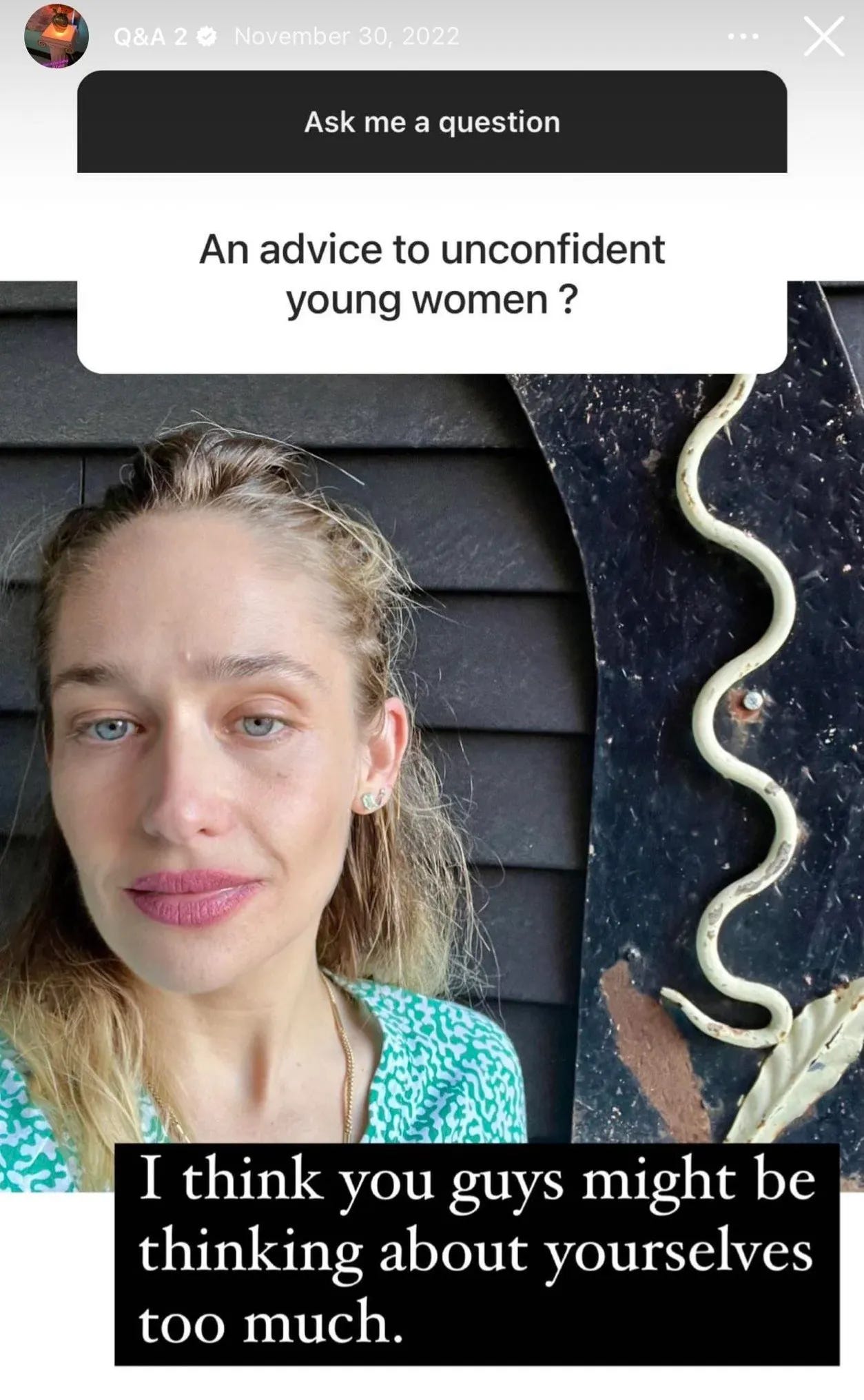AITAH / AITDA
Disclaimer: This is an opinion piece, and much of it is extracted from personal observations and experiences. Anything incorrectly cited is a result of my own erroneous paraphrasing.
On my side of the Internet, there seems to be a growing amount of chit chat over people’s inability to be good friends and community members. A growing awareness that people are struggling to adhere to the social contracts as we knew them while observing the adults in our lives during formative years. If you’re unclear on what I’m referring to, I’ll point you in the direction of two great videos below.
The Gen Z Friendship Crisis by Amanda Maryanna
How Gen Z Protected their Peace Too Hard and now has No One by Ashley Embers
There are so many reasons for why we find ourselves collectively treating friendship and connection this way. I say “ourselves” as a younger millennial because even though the above videos specifically discuss the behaviour of Gen Z, I can attest from personal experience that my generation has been guilty of doing the same things since well before the COVID-19 pandemic (which many agree to be the catalyst of deteriorating social skills and over-dependence on convenient situations and services).
So yes, there was that period of time in the early 2020s when we had no choice but to stay indoors as much as possible. That seemed to make some folks even more allergic to small talk with customer-facing staff in public spaces since they could avoid that altogether by staying home and waiting for the delivery van. Then came staggering inflation as the world was just opening up, and it was hard to imagine being able to stretch pre-pandemic wages for social activities that could easily be categorized as “non-essential.” A silver lining for many during the time of restrictions was that it allowed relationships that weren’t structurally sound to dissolve. No need for a dramatic friend break-up when social distancing orders took care of that for you and when there was an unspoken, yet mutual understanding to stop asking each other for Zoom catch ups or park hangs. And even after we emerged into the world again, the plethora of reality TV shows bring a sufficient drama fix while eliminating any opportunity for friction or confrontation. Parasocial friendships with influencers via YouTube and TikTok are plenty to keep a person company, too. You can spend a day in the life with someone in LA, New York, Miami, London, Perth, etc. whenever you decide to hit “play.”
Suddenly, it seemed like an internet connection was all a person really needed. Why struggle through traffic and unpleasant weather just to awkwardly stand in a nightclub before the effects of alcohol settle in? And then try to find your way home via ride share with blurry vision? Why do that when you can stay in the confines of your abode, controlling which parts of you are sent into the outside world through Wifi?
Playing Pretend
More than ever, I find that we’re spending so much time observing ourselves while simultaneously feeling afraid to be truly seen by others. Those in my age group watched Instagram go from a wholesome photo-sharing site to the money-making and negativity-bias stoking machine it is today. “Photo dumps” for the grid go through testing phases before they’re published, all to emanate the perfect balance of nonchalance and carefree frolic with envy-inducing images of luxury, adventure, or culture. Sadness, despair, and feelings of “cringe” ensue when the likes and comments roll in slower than expected. Panic takes over as the story post’s life nears the end of the 23rd hour and your crush hasn’t noticed. But nobody can know! You are unbothered!
A similar game is played on LinkedIn for our “professional branding.” You pick a profile picture that makes you look benevolent, but firm and capable of using sound judgement. You upload certificates after completing course modules watched at 1.5x speed. You reluctantly “congratulate” old classmates and former coworkers who seem to land coveted role after coveted role with ease. The notification that you “appeared in x amount of searches” inspires a feeling of hope in your heart before you remember that it’s quite often a pretty useless metric. You stumble across yet another humble-brag post with the mandatory circle-jerk comments to follow.
And all the while you think to yourself, “I can’t take it anymore. I never consciously signed up to play these characters that aren’t me.”
A person existing in these circumstances may grow guarded. Colder, hardened. Afraid to be vulnerable or initiate a conversation with someone they’d like to get to know. Every “left on read” gone too long signals to the brain that this was meant to be some kind of slight. Every unrequited “follow” on social media platforms makes you wonder what’s wrong with you, or if you misread what you had hoped were signs of becoming fast friends with a peer. What gives them the right to be so stuck-up? The mammalian brain overworks itself. The belief that “if they wanted to, they would” becomes a conclusion that sounds most appropriate, and you’ll know to come off less eager next time.
AITAH? AITDA?
All of this has made me think about how far the pendulum swings in the gargantuan subreddit, r/AITAH. There, you’ll find people of varying moral compasses asking strangers loaded questions on how they handled a particular situation. It’s fascinating to see where people stand on what’s acceptable versus what’s truly unforgivable.
A person trying to strike a balance of harmony in their relationships and with themself might ponder:
Was I being fair to them? To me? Am I getting better at enforcing boundaries where they once should have been, or am I being too harsh and strict about something this time? Why do I even think that, though? When was the last time a conversation initiated by a friend/family member was about anything besides the goings on in their life? Am I guilty of doing the same? Have I sacrificed for them a little too much in the last while? When was the last time they showed up for me?
And when one is so sure that they are in fact not the asshole, they start to ask: Am I actually the dumbass? Am I being played? Am I being taken for granted?
Many online voices claim that in an effort to compensate for the time spent thinking of and doing too much for others, the next best action to take is to “protect their peace” at all costs. Turning oneself into their biggest science project becomes their life mission. After all, you can’t pour from an empty cup right?
When Introspection goes Awry
As self-improvement becomes a full time job, hyperbolic statements such as “I don’t owe anyone anything” and “I don’t need anyone” echo in inner monologues. “People pleasing” is looked at like a zero sum game, and a nice thing done for others is also known as a notable deduction of one’s time, energy and resources. If a friendship isn’t always low effort, you don’t want it. Your time is important! Don’t they understand that today you have to do one outdoor workout, one indoor workout, read 10 pages of a self-help book, journal, go to therapy, and meditate with your red light mask while wearing your Normatec boots? You sense that you’re getting better at growing a courage to be disliked, which overall has a net positive. Being disliked, unaccepted or unwelcome in spaces used to be one of the hardest pills to swallow for you. Now you get to beat them to the punch.
Regular introspection helps build a centre of gravity within ourselves. Up to a certain point in time, our ancestors couldn’t really afford to do it since their waking hours went towards survival. Some would argue our relatives on this earth still stubbornly refuse to do it.
While data-obsessed self improvement dominates the western world, it might be in our best interest to notice how too much self-introspection can keep us frozen. Dr. Hanson notes on the Being Well podcast (hosted by his son, Forrest Hanson) that overthinking can be used as an avoidance mechanism to dodge risk of actually making a decision, or experiences they might have with other people if they move forward.
“A passion for the useful truth,” according to Dr. Hanson, is the separation between unhealthy hamster wheel rumination and a path to clarity and sense of completion. Another circuit breaker for over thinking is to simply ask ourselves “What is not overthinking? What is not obsessing? What is not ruminating?” After doing it for so long, it can almost feel jarring to think of breaking the habit. Dr. Hanson describes overthinking as an ongoing report of oneself, and a way of gaining intimacy with the self. But it doesn’t bring us any more insights. It isn’t exploratory, and it is often experimentation-averse.
Actually, we do owe others
I’m going to sound like one of those douchey biohacking/entrepreneur podcast bros when I say this: Anything worth having will cause some inconvenience. And if we wait for circumstances to be ideal in order to act or to enjoy something, we miss out on a lot.
It’s true, modern life is exhausting. We weren’t meant to juggle so many competing professional and personal priorities at break-neck speed. Trying to do right by others while keeping your life from unravelling can feel almost impossible on days that you have nothing left to give. Having our energy zapped from sitting in front of screens or performing manual labour for 8+ hours a day, 5+ days a week is not our first choice when it comes to spending our precious time on this one green earth.
Irrevocably, though, you are part of a community. Things have been done for you and your life has been touched by people you might not ever meet and vice versa.
Construction slowing down traffic when you’re trying to get home after a long day sure isn’t fun. But when we drive over a pothole, all we can think of is where those damned city workers are when we need them. We notice the disruption in our daily routines once public transport services are put on pause due to workers taking job action, but we forget that bus drivers work through bank holidays and around sparse break times to get us where we need to go year-round.
Conversely, you fighting through the afternoon slump to meet up with a friend after work was what they needed to get through a really hard time. You being patient and kind to your server made up for the difficult customer sitting in your seat prior. You giving directions and sharing recommendations to lost tourists made them speak fondly of their visit to your city to loved ones back home for years to come.
And there will be times when you worry you’re being too much. Like when you put yourself out there in a social setting and you find your energy isn’t reciprocated - Your jokes aren’t landing, or people talk over you when they’re distracted. What now? Tell yourself this: Them not being ready receive what you offer does not take away the genuineness of your heart. Bringing your whole self with consideration and respect for others is not something to regret. Living in anonymity is safe, but it also stifles you.
Some scorecards will just never really be “settled.” We don’t know if doing good will come back to us in due time. We can’t be promised that everywhere we go, we’ll be seen, understood, or liked in return. Actively participating in community does not mean self abandonment, and hyper individualism doesn’t protect us the way we think it will. We are the main characters in our own lives only. It is a blessing to be a villager.





